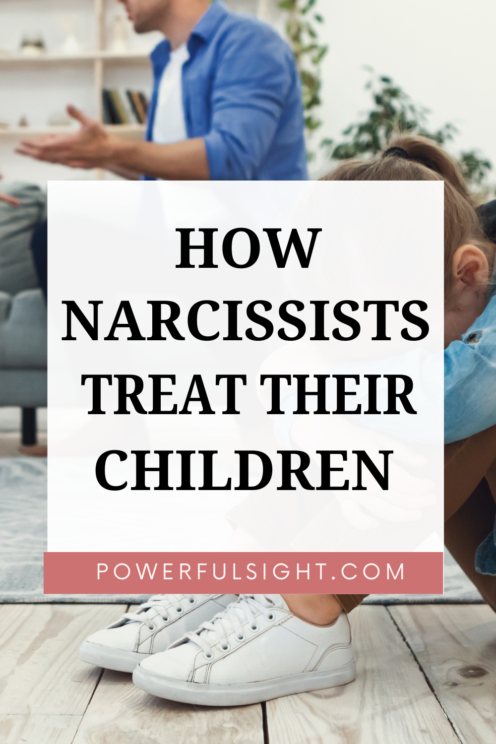Narcissistic parenting behavior can have a profound impact on children, shaping their emotional well-being and future relationships. Understanding how narcissists treat their children is crucial for identifying the signs of this harmful behavior. Today, I will be sharing with you, the various ways narcissists treat their children and the lasting effects it has on their children.
Signs of Narcissistic Parenting Behavior
Narcissistic parents often display a sense of entitlement, constantly seeking admiration and validation from their children. They may show little empathy or emotional support, focusing solely on their own needs and desires. These parents may manipulate their children, using guilt or emotional blackmail to maintain control. Additionally, they tend to have unrealistic expectations of their children, placing excessive pressure on them to meet their unfulfilled dreams and aspirations.
Narcissistic parents may also engage in gaslighting, which involves distorting the child’s reality and making them doubt their perceptions and emotions. They may undermine the child’s self-esteem, belittling their achievements and dismissing their feelings. Furthermore, narcissistic parents may exhibit extreme jealousy towards their children’s successes, often using tactics to sabotage their accomplishments and maintain a sense of superiority.
Save the pin for later

10 Ways Narcissists Treat Their Children
- Emotional Neglect: Narcissistic parents often fail to provide emotional support and nurture their children’s emotional needs. They may dismiss their child’s feelings or even ignore them completely, leaving the child feeling emotionally abandoned.
- Conditional Love: Narcissistic parents tend to offer love and approval only when their children meet their expectations or serve their needs. This conditional love creates an unhealthy dynamic, where the child constantly seeks validation and approval from their parent.
- Manipulation and Gaslighting: Narcissistic parents are skilled manipulators, using tactics such as gaslighting to distort the child’s reality. They may make the child doubt their thoughts, feelings, and perceptions, causing confusion and self-doubt.
- Parentification: Narcissistic parents may reverse roles with their children, expecting them to fulfill parental responsibilities. This places an immense burden on the child, robbing them of their childhood and preventing them from developing their own identity.
- Lack of Boundaries: Narcissistic parents often invade their children’s boundaries, treating them as extensions of themselves. They may disregard the child’s need for privacy and personal space, leading to a blurring of individuality.
- Emotional and Verbal Abuse: Narcissistic parents may resort to emotional and verbal abuse to assert control and dominance. They may use harsh words, insults, and constant criticism to degrade and belittle their children.
- Neglecting Basic Needs: Narcissistic parents may neglect their children’s basic needs, including physical care, nutrition, and safety. They may prioritize their desires and interests above those of their child, leading to neglect and potential harm.
- Enmeshment: Narcissistic parents often foster an enmeshed relationship with their children, where boundaries are blurred, and individuality is suppressed. This enmeshment prevents the child from developing a healthy sense of self and independence.
- Emotional Rollercoaster: Narcissistic parents may create an unstable emotional environment for their children, with unpredictable mood swings and emotional outbursts. This constant instability can leave the child feeling anxious, confused, and constantly on edge.
- Projected Expectations: Narcissistic parents often project their unfulfilled dreams and aspirations onto their children. They may pressure the child to achieve unrealistic goals or pursue paths that align with the parent’s desires, disregarding the child’s passions and interests.
Related: How to deal with a narcissist
The Lasting Effects of Narcissistic Parenting on Children
The effects of narcissistic parenting on children can be long-lasting and pervasive. Children raised by narcissistic parents often struggle with their self-esteem and sense of self-worth. They may constantly seek external validation and struggle with forming healthy relationships, as they have been conditioned to prioritize the needs of others over their own.
The emotional abuse inflicted by narcissistic parents can lead to a range of psychological issues, including anxiety, depression, and post-traumatic stress disorder (PTSD). These children may develop a fear of abandonment and struggle with trust, as their primary caregiver was inconsistent and unreliable in meeting their emotional needs.
Conclusion
Understanding how narcissists treat their children is important, especially if you want to know whether you have a narcissistic parent. Children raised by narcissistic parents often face emotional neglect, manipulation, and a lack of healthy boundaries. These experiences can have a profound impact on their self-esteem, relationships, and overall well-being.
Save the pin for later

- How to Set Goals for 2026 - 15/12/2025
- Vision Board Ideas for Manifesting Goals in the New Year - 15/12/2025
- New Year’s Resolution Journal Prompts for Self-Growth - 15/12/2025
